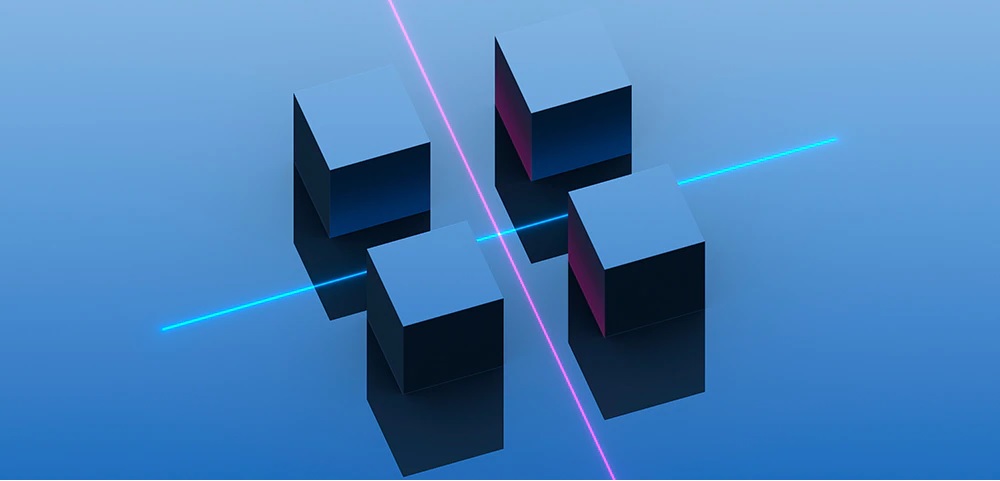A primer on blockchain in healthcare

While it may seem like a foreign buzzword related to volatile cryptocurrency and speculative assets, blockchain technology is revolutionary and highly relevant to the future state of healthcare.
A primer on blockchain in healthcare
According to Healthcare Weekly, 40% of industry executives see blockchain technology as a top five priority. Further, the adoption of blockchain in healthcare could save $100-150 billion dollars annually by 2025 due to its ability to reduce costs, streamline administrative processes and improve access to information. Below I will outline the fundamental elements of blockchain technology, walk through specific use cases in healthcare, and introduce companies that are developing blockchain solutions to tackle difficult challenges in healthcare today.
What is Blockchain Technology?
The National Institute of Standards and Technology defines blockchain as “tamper evident and tamper resistant digital ledgers implemented in a distributed fashion (i.e., without a central repository) and usually without a central authority (e.g., a bank, company, or government).”
Data or transactions known as “blocks” are linked together by mathematical algorithms stored in shared ledgers and supported by a network of connected processes called nodes. Nodes maintain a copy of the entire chain and are continually updated and kept in-sync. This eliminates the need for a central database and spreads the risk of a data breach among nodes in the network.
At a basic level, blockchain enables a community of users to record transactions or other relevant information digitally in a shared ledger that is maintained by a highly secure peer-to-peer network. The dynamic solution has potential to solve pressing issues across the healthcare landscape.
Select Use Cases
The use of blockchain technology in healthcare is about increasing the security of various transactional activities while eliminating bureaucracy and manual inefficiencies to improve quality of care and democratize relevant datasets. Outlined below are relevant use cases where the technology is currently being deployed.
Securing Patient Data: In 2018, there was at least one data breach of healthcare records every day. Further, between 2009 and 2018, more than 59% of the U.S. population had their healthcare records compromised from data breaches. Blockchain’s ability to keep an immutable record and decentralization of the network makes it well-suited for storing secure data. Companies like Akiri, based in Foster City, California, leverage blockchain technology to offer network-as-a-service to ensure that healthcare data remains secure and shareable with only authorized parties. Further, the FDA has started an initiative to define the best way of using blockchain to exchange health data. With these efforts underway, it is highly likely that others will follow.
Medical Record Management: Miscommunication costs the healthcare industry $11B per year, and 86% of mistakes made in the industry are administrative. The process of obtaining access to medical records is highly time-consuming and often inaccurate, which drains resources that could instead be devoted to providing care. Blockchain creates one ecosystem of patient data that can be accessed by anyone involved in treatment, including doctors, hospitals, and pharmacists. Companies like Avaneer Health, backed by Aetna, Anthem, and the Cleveland Clinic, are using blockchain technology to support better claims processing and to secure healthcare data exchanges and organized provider directories. Other companies, like Atlanta, Georgia-based Patientory, are using blockchain to enable the secure storage and transfer of important medical information.
Supply Chain Management: One of the main issues in pharma is counterfeit medicines entering the market. A likely driver of this is the lack of a secure digital platform. Current systems do not transfer information to one another, making it difficult for pharma companies to follow their products from lab to consumer. A decentralized blockchain solution ensures that data cannot be manipulated, while all relevant parties have access to the information and detailed records for each stage of the distribution process, leaving minimal opportunity for counterfeit drugs to enter the market. Further application could allow for monitoring of labor costs and waste emissions. Companies like San Francisco-based Chronicled are building blockchain networks that demonstrate chain of custody to ensure safe arrival and detailed review of drug shipments. Others like Tierion, based in Mountain View, California, are leveraging blockchain to maintain a clear possession history within medical supply chains.
While blockchain is still nascent in the healthcare industry, the technology has broad applicability and is a near-term priority for executives across the industry facing critical challenges, such as rising costs, administrative burden, and access to information. Increased security, reduced bureaucracy and improved efficiency generated by the blockchain have significant opportunity to address critical industry challenges while improving quality of care.